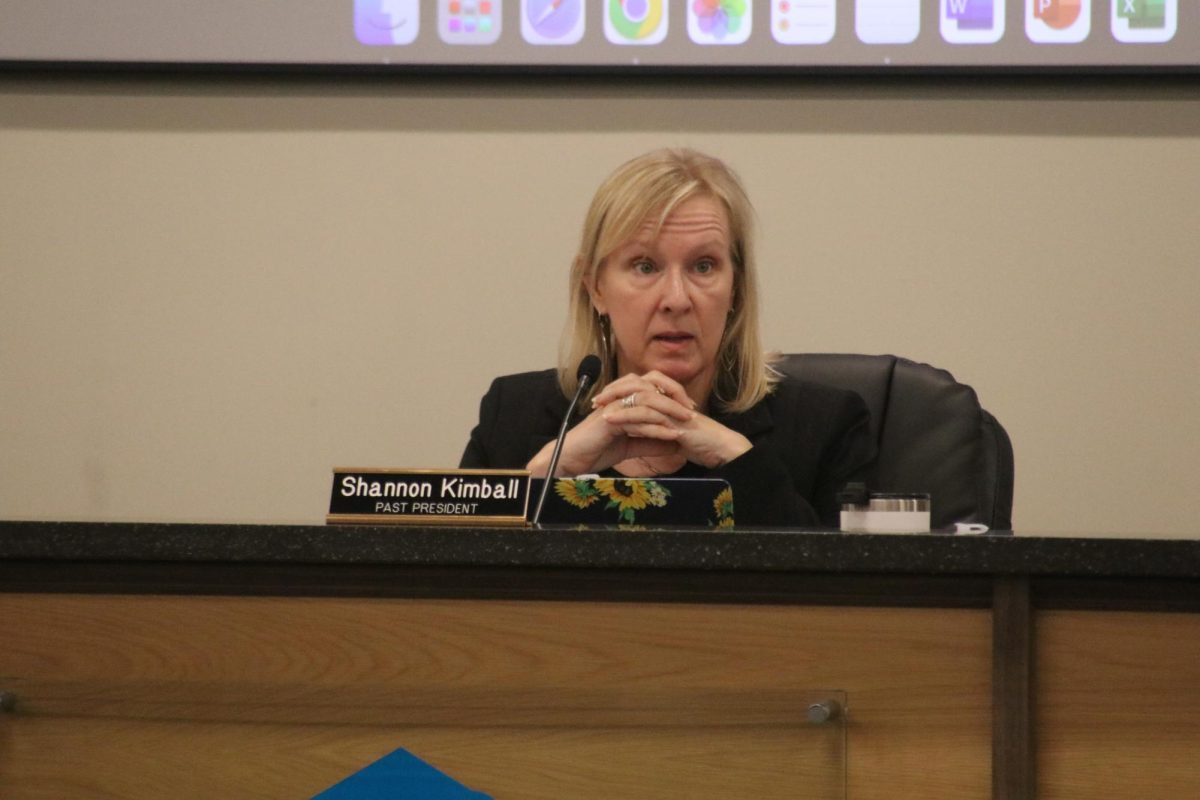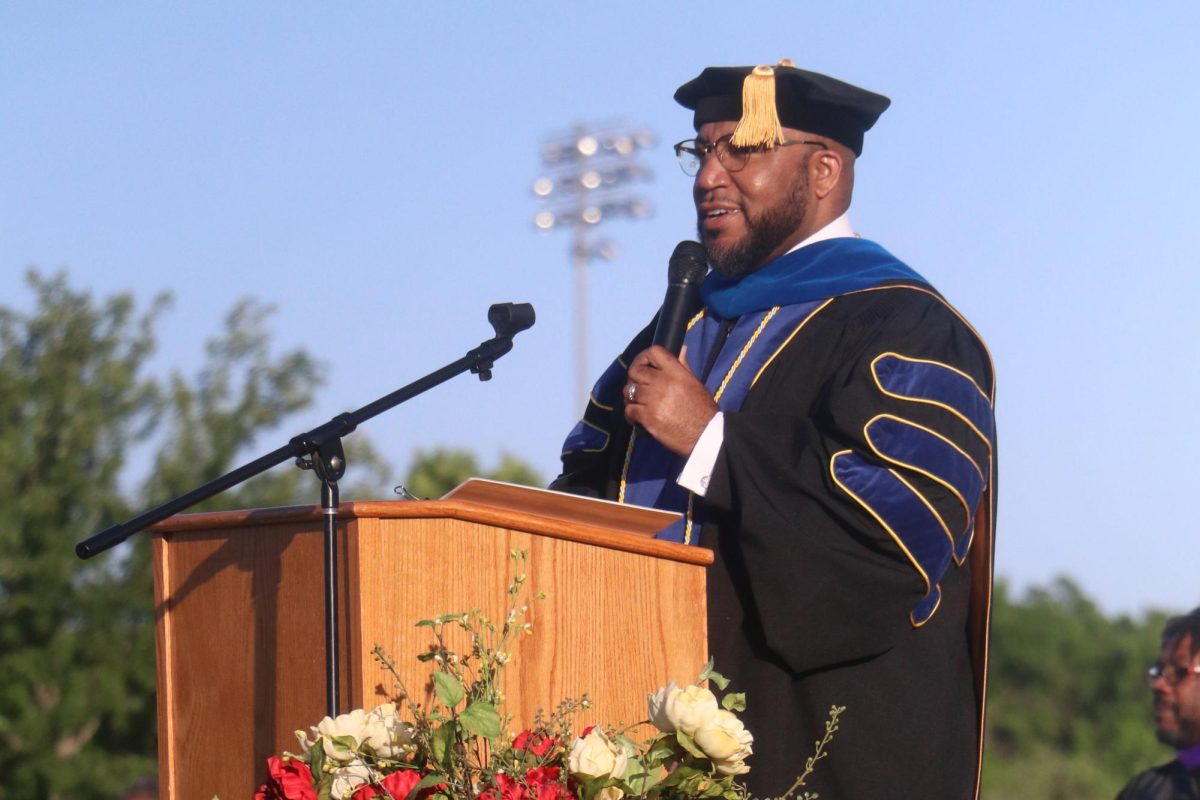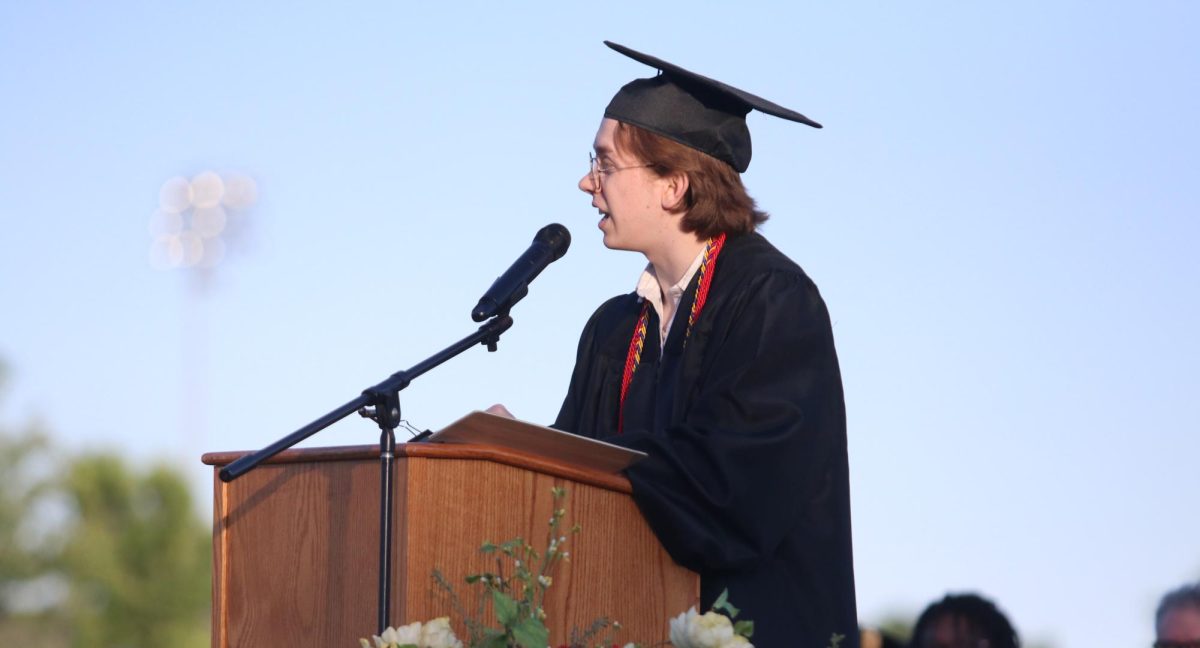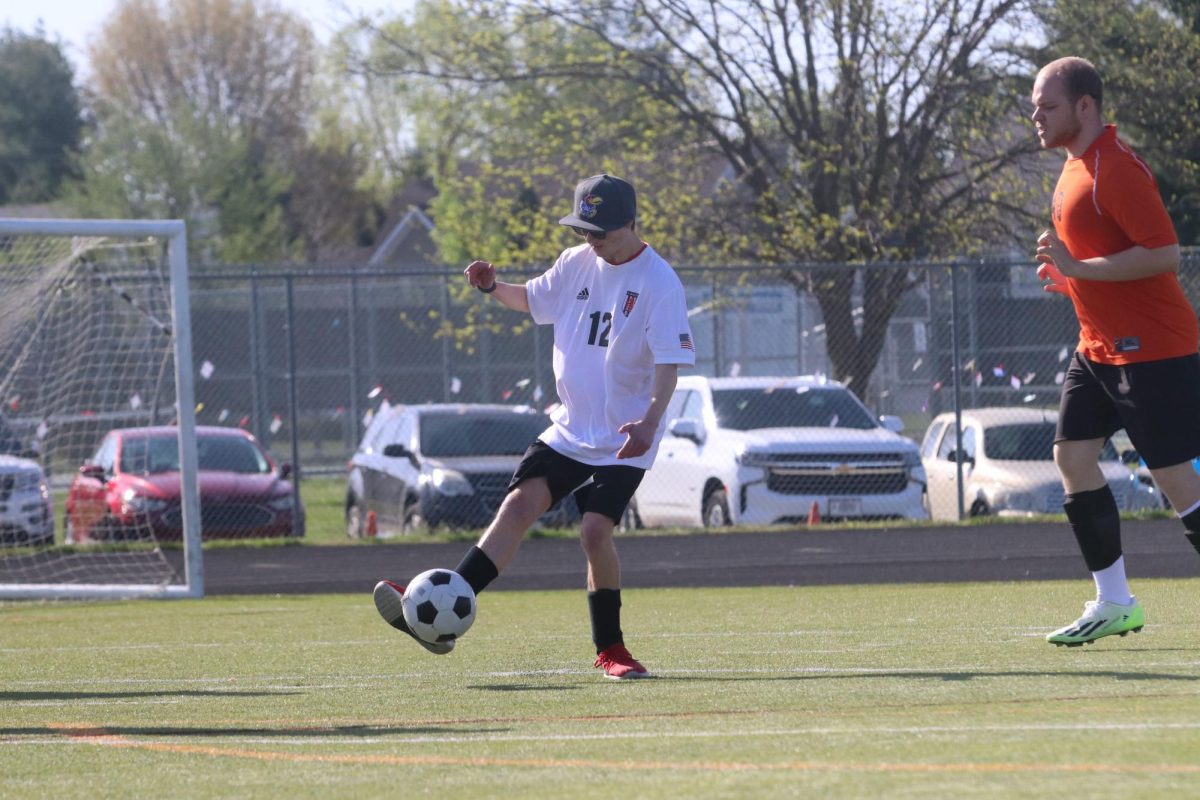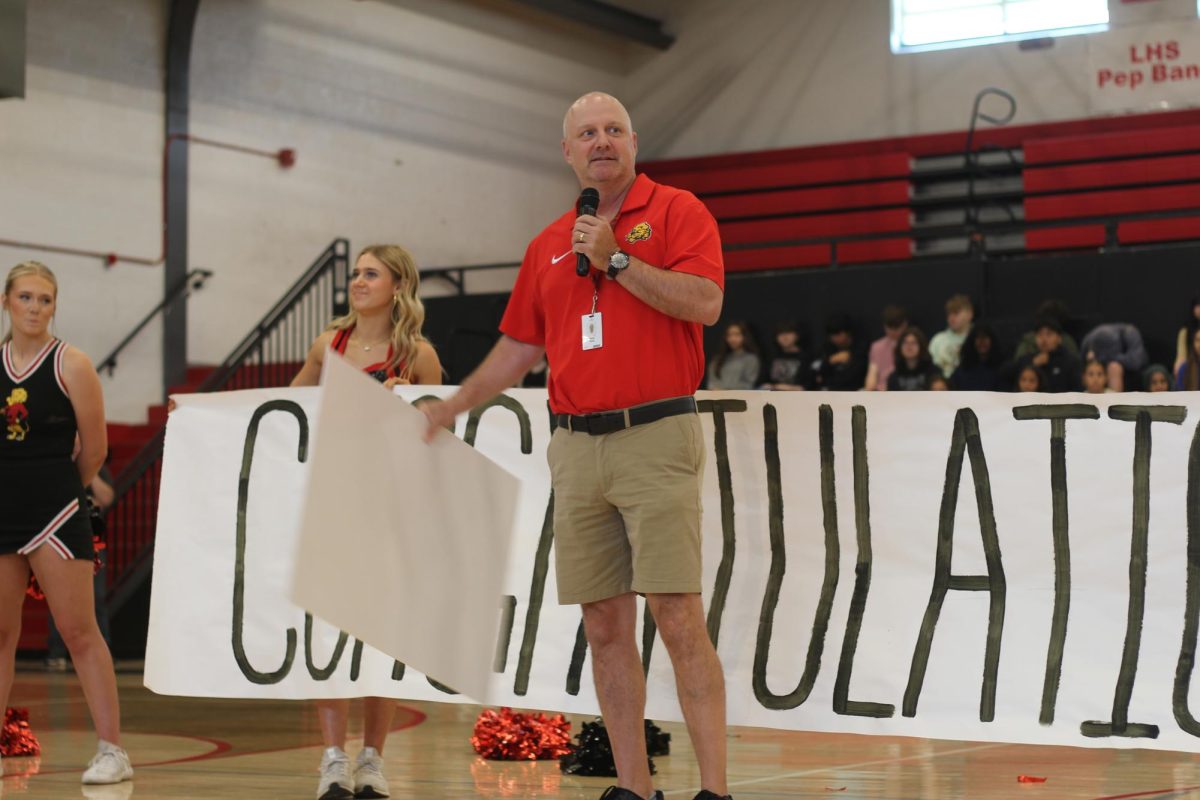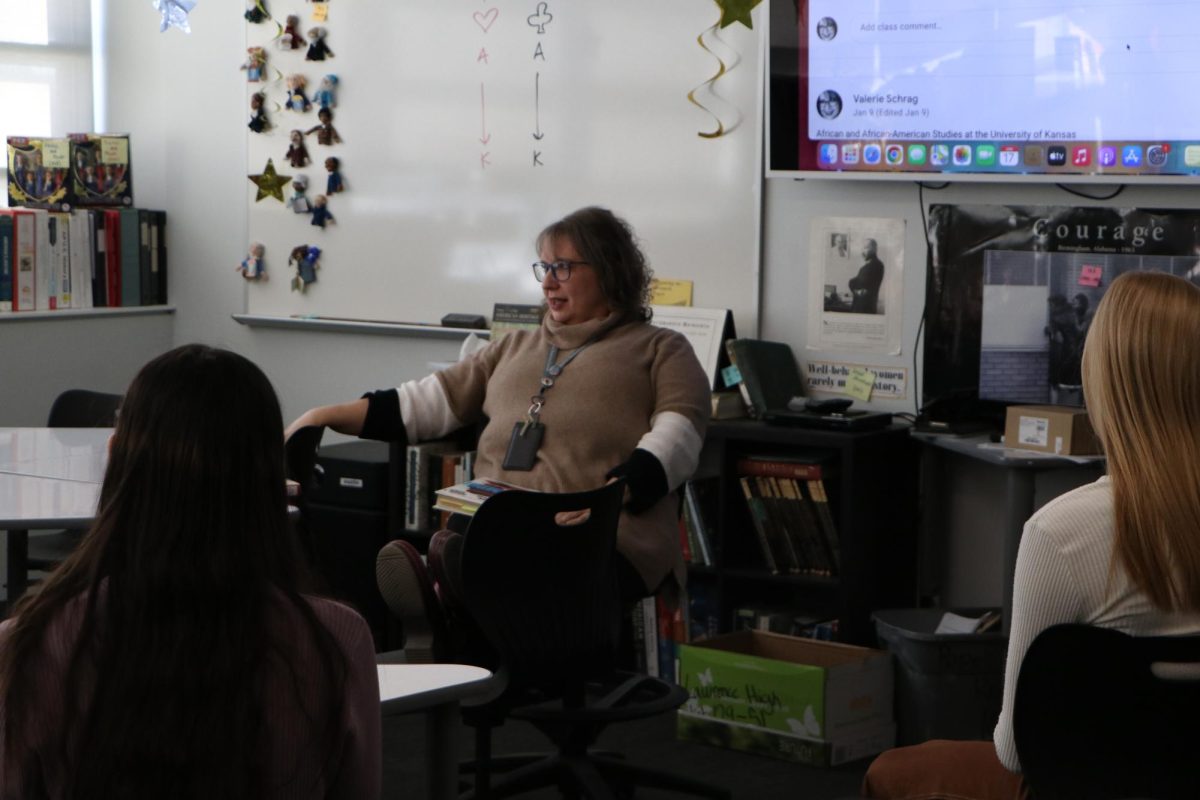Lawrence High School teacher and historian Valerie Schrag has taught African American Studies at LHS since the fall of 2001. For the first time since, she’s teaching a different curriculum: the pilot semester of AP African American History, a course which the College Board has been developing for over a decade, and will launch for AP credit in the 2024/2025 school year.
The year-long class is being piloted in over 600 schools across America. LHS is not among them, but Schrag’s efforts have resulted in the next best thing: 13 LHS juniors and seniors currently enrolled in a semester-long version of the pilot course, engaging in select lessons and topics from the new curriculum.
To decide on those topics, Schrag turned to the students.
“Literally on the first day of class I handed them all of the course topics from the course framework,” she said. “I said ‘come back tomorrow with your top ten.’”
The class proceeded to discuss interests in the lessons offered, and Schrag plans on incorporating all she can. But the significance of the topics covered cannot be overlooked.
AP African American History is a class whose core lessons and ideas have been the source of political controversy since its proposed curriculum went public. It currently features unique areas of study not covered in standard history classes, including contributions of ancient African societies, the Haitian Independence Movement, and resistance legacies found in black art. Its stories and content represent a progressive trend in education.
Schrag recognizes the impact of this trend.
“This is a course that needs to be taught to have a fuller understanding and comprehension of our nation’s history and all of the stories that make up the history of this nation,” she said.
But while the pilot course is thriving in many areas of the country, it has been banned in others. In states as close as Arkansas, Republican lawmakers have blocked the class, and protest the so-called ‘woke-ism’ within schools.
The particulars of the curriculum have already been under fire. Crucially, topics such as structural racism, black queer studies, and critical race theory have been omitted, instead listed as options of study for the course’s final project, which will be graded as part of the final AP exam.
It’s a prime representation of the struggle to teach hard history in America, and contextualize current events with a messy historic past. But most importantly, the students keep showing up.
“Wokeism isn’t bad,” junior Anneesah McCant said, reacting to the controversy. For her and other students enrolled, its content is exactly what they are looking for in a history class.
“We should learn about the past, even if it’s not pretty,” McCant said.
Schrag agreed with her students.
“To me, any good instruction in any subject makes applications to today,” she said. “I don’t ignore current events. I don’t dismiss my student’s questions or curiosities, we deal with it within that historical context.”
She also emphasizes that the dropped topics from the curriculum are not entirely the result of far-right censorship. In actuality, some topics were simply too much to cover within the framework of the class, and were dropped after initial piloting last school year.
“Critical race theory is a graduate school philosophy,” Schrag explained. “Part of the nature of building a course is figuring out what you have time for, and what you don’t. I understand the panic and the criticism,” but, she said, “there is a far deeper reason than Republican lawmakers throwing a fit.”
At LHS, the course arrives against the backdrop of a strong black studies program already in place. It was the sit-ins by African American students at LHS in the fall of 1968 that sparked the addition of the African American studies course the following spring semester in 1969.
Schrag underlines the significance of such actions.
“Lawrence High has had an African American history course for over 50 years,” she said. “That is phenomenal when you consider that many colleges and universities don’t even have African American history courses.”
Within such historical context at LHS, Schrag’s students understand that an AP version of African American history is the future. Senior Ayanna Ness reflects on how long it took to finally offer the course in schools.
“I don’t understand why we can have AP versions of all these other classes, but not African American,” she said.
She says she’s taking the course with hopes of it expanding.
“Let’s add it to more schools,” she said.
Schrag is optimistic about the types of courses that could be developed in the future.
“I hope they are working on a course in Native American history, and American Indian studies,” she said. “I hope they are working on a course in women’s and gender history.”
The potential for new and more complete narratives of history to be told in classrooms across America is a reflection of progress which Schrag believes must continue.
“There are so many stories that are critical for being told, that need to be told, to understand who we are as a nation, and where we are as a nation,” she said. “If we are having difficulty talking about something, it probably means we need to talk about it more.”
Offering AP African American history for the first time is perhaps a step in the right direction.
“There’s more to do,” Schrag said. “But in this way, Lawrence High School is and remains, towards the cutting edge.”



